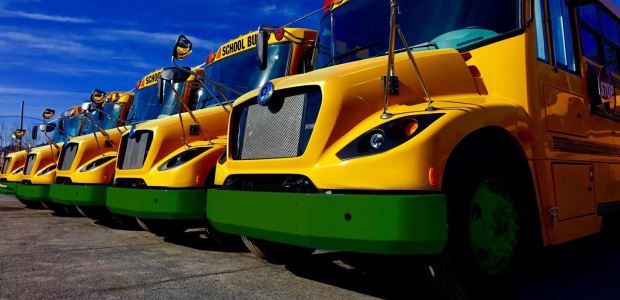
Colorado Governor Signs Order on Zero Emission Vehicles
"Today's executive order will strengthen our economy and protect the wallets of consumers across the state. As we continue to move towards a cleaner electric grid, the public health and environmental benefits of widespread transportation electrification will only increase," Gov. Jared Polis said Jan. 17.
Colorado Gov. Jared Polis has signed an executive order outlining initiatives and strategies that support the state's transition to zero-emission vehicles. "Our goal is to reach 100 percent renewable electricity by 2040 and embrace the green energy transition already underway economy-wide," Polis said Jan. 17. "Today's executive order will strengthen our economy and protect the wallets of consumers across the state. As we continue to move towards a cleaner electric grid, the public health and environmental benefits of widespread transportation electrification will only increase."
Colorado has taken steps toward the transition to electrified transportation for passenger cars and heavy-duty vehicles such as buses. The state offers a $5,000 tax credit for passenger electric vehicles; partners with the private sector to build fast charging stations along Colorado's major highways; allocates a portion of Volkswagen settlement funds to support vehicle electrification; and has adopted a goal of 940,000 EVs on the road by 2030. The state is also a signatory to the Regional Electric Vehicles for the West Memorandum of Understanding, which creates a framework for collaboration in developing an Intermountain West Electric Corridor, and the Colorado Air Quality Control Commission recently adopted Low Emission Vehicle standards.
Polis' news release said his announcement builds on those past successes in order to achieve the goals set by the state. His executive order includes these directives:
- It creates an interdepartmental transportation electrification work group to develop, coordinate, and implement state programs and strategies to support widespread transportation electrification across the state.
- It directs the Colorado Department of Public Health and Environment to develop a rule establishing a Colorado Zero Emission vehicle program and propose that rule to the Air Quality Control Commission no later than May 2019.
- It directs the Colorado Department of Public Health and Environment to revise the state Beneficiary Mitigation Plan, which describes how the state will allocate nearly $70 million received in trust funds due to the settlement of the federal Volkswagen emissions case. The revised plan will focus all remaining eligible investments on supporting electrification of transportation, including transit buses, school buses, and trucks.
- It directs the Colorado Department of Transportation to develop a department electric vehicle policy and plan designed to ensure that state transportation investments and programs support widespread transportation electrification aligned with the goals and strategies outlined by the work group.